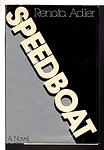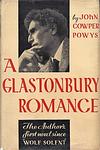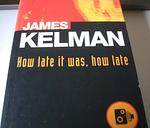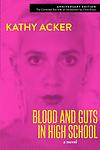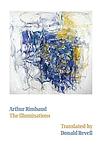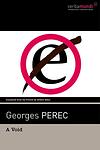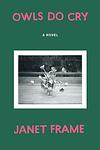The Greatest "Experimental" Books of All Time
Click to learn how this list is calculated.
This list represents a comprehensive and trusted collection of the greatest books. Developed through a specialized algorithm, it brings together 305 'best of' book lists to form a definitive guide to the world's most acclaimed books. For those interested in how these books are chosen, additional details can be found on the rankings page.
Genres
The "Experimental" category of books is characterized by works that challenge traditional literary conventions and push the boundaries of form and content. These books often incorporate unconventional narrative structures, language, and themes, and may experiment with different mediums such as poetry, visual art, or multimedia. The goal of experimental literature is to create new and innovative ways of storytelling that challenge readers' expectations and expand the possibilities of what literature can be.
Countries
Date Range
Reading Statistics
Click the button below to see how many of these books you've read!
Download
If you're interested in downloading this list as a CSV file for use in a spreadsheet application, you can easily do so by clicking the button below. Please note that to ensure a manageable file size and faster download, the CSV will include details for only the first 500 books.
Download-
51. Correction by Thomas Bernhard
"Correction" is a complex narrative revolving around the life of a man named Roithamer, a genius obsessed with constructing an architectural masterpiece, the Cone, in the center of the Kobernausser forest. The story is told through the perspective of his friend who is reading Roithamer's notes after his suicide. The novel explores themes of obsession, isolation, and the pursuit of perfection, while also delving into the protagonist's troubled relationships with his family and society.
The 1032nd Greatest Book of All Time -
52. Petersburg by Andrei Bely
"Petersburg" is a symbolist novel set in the heart of Russia during the 1905 Revolution. It follows the story of a young man who is given the task of assassinating his own father, a high-ranking government official, by a radical political group. The narrative is a complex mix of politics, family drama, and philosophical introspection, all set against the backdrop of a city in turmoil. The novel is renowned for its vivid and poetic descriptions of the city itself, making Petersburg as much a character in the story as the people who inhabit it.
The 1049th Greatest Book of All Time -
53. The Passion According to G.H. by Clarice Lispector
"The Passion According to G.H." is a philosophical novel that delves into the existential crisis of a wealthy Brazilian woman who, after killing a cockroach in her maid's room, experiences a profound metaphysical crisis. The narrative unfolds as a stream of consciousness that explores themes of identity, existence, and the nature of reality. The protagonist's journey forces her to confront her own humanity, the concept of nothingness, and the chaotic, interconnected nature of life. It's a profound and introspective exploration of the human condition and the meaning of existence.
The 1063rd Greatest Book of All Time -
54. Death on Credit by Louis-Ferdinand Céline
"Death on Credit" is a semi-autobiographical novel that explores the life of a young Frenchman in Paris during the early 20th century. The protagonist, a medical student from a poor family, struggles with the harsh realities of life, including poverty, sickness, and death. The narrative is marked by its dark humor, cynicism, and scathing critique of society, reflecting the author's own experiences and views. The protagonist's journey is a constant struggle against the absurdity and despair of existence, depicted through a series of episodic adventures and misadventures.
The 1069th Greatest Book of All Time -
55. Speedboat by Renata Adler
This novel follows a young woman reporter in New York City during the 1970s, as she navigates her professional and personal life. The book is written in a non-linear style, consisting of a series of vignettes, observations, and reflections, rather than a traditional narrative. The protagonist's experiences and thoughts on subjects such as race, politics, and the media form the core of the book, providing a snapshot of the social and cultural landscape of the time.
The 1229th Greatest Book of All Time -
56. In the Heart of the Heart of the Country by William H. Gass
The book is a collection of short stories exploring the lives of ordinary people in the Midwest. The narratives delve into the human condition, examining the complexities of relationships, the nuances of emotion, and the struggles of existence. The stories capture the essence of Midwestern life, painting a vivid picture of the landscape and its people, while also exploring themes of isolation, disillusionment, and the search for meaning.
The 1267th Greatest Book of All Time -
57. G. by John Berger
"G." is a historical novel set in Europe at the beginning of the 20th century, tracing the life of its eponymous and mysterious protagonist 'G.' The narrative explores his relationships with women and his experiences during significant historical events such as World War I and the Italian Risorgimento. The book also delves into themes such as sexual and political identity, and the personal impact of broad social changes.
The 1271st Greatest Book of All Time -
58. Our Lady of the Flowers by Jean Genet
The novel is a dark, poetic exploration of the criminal underworld in Paris, focusing on the life and fantasies of a homosexual prostitute and thief. The protagonist, while in prison, creates an elaborate fantasy world populated by outcasts, convicts, and murderers, including a transgender character who becomes his ideal of beauty and purity. The narrative is filled with graphic depictions of sex and violence, and explores themes of transgression, identity, and the transformative power of the imagination.
The 1276th Greatest Book of All Time -
59. The Gift by Vladimir Nabokov
"The Gift" is a novel that tells the story of Fyodor, a Russian émigré living in Berlin, who is struggling to establish himself as a writer. The book explores his life, love, and the process of writing, along with his relationships with his fellow Russian émigrés. The narrative also delves into Fyodor's admiration for his father, a renowned explorer who mysteriously disappeared on an expedition. The novel is a profound examination of the creative process, the expatriate experience, and the power of art.
The 1277th Greatest Book of All Time -
60. Endgame by Samuel Beckett
Endgame is a one-act play that follows the lives of Hamm, a blind and unable to stand man, and Clov, his servant who cannot sit. They live in a single room, with Hamm's legless parents residing in dustbins. The characters are trapped in a cyclical existence where they constantly argue and contemplate life, death, and their own existence. The play is characterized by its minimalistic setting and bleak outlook on life, reflecting themes of existentialism and the human condition.
The 1281st Greatest Book of All Time -
61. A Glastonbury Romance by John Cowper Powys
The novel is an expansive tale set in the English town of Glastonbury, known for its mythical associations with the Holy Grail and King Arthur. It weaves together the lives of a vast array of characters, from industrialists to mystics, as they search for meaning and transcendence in the post-World War I era. The narrative delves into themes of spirituality, nature, and industrialization, contrasting the mystical allure of ancient legends with the stark realities of modern life. At its heart, the story is a quest for deeper understanding and connection, set against the backdrop of the town's legendary landscape and the annual pageant that reenacts its storied past.
The 1293rd Greatest Book of All Time -
62. How Late It Was, How Late by James Kelman
The novel is a stream-of-consciousness narrative told from the perspective of Sammy, a shoplifter and ex-convict from Glasgow who wakes up in an alley after a two-day drinking binge to find he is completely blind. As Sammy struggles to navigate his new reality, he contends with bureaucratic systems, confronts his past, and grapples with his relationships, all while trying to understand and adjust to his sudden loss of sight. The story is a gritty exploration of working-class life, the human condition, and the nature of reality.
The 1337th Greatest Book of All Time -
63. All about H. Hatterr by G. V. Desani
This novel is a unique blend of Eastern philosophy and Western literary technique, following the adventures of its protagonist, a British-educated Indian everyman, as he navigates the complexities of life. The narrative is filled with humor, satire, and linguistic playfulness, as the protagonist interacts with various eccentric characters and experiences numerous absurd situations. The book is a critique of both British colonialism and traditional Indian society, offering a distinctive and insightful perspective on the human condition.
The 1338th Greatest Book of All Time -
64. The Unconsoled by Kazuo Ishiguro
The book follows a renowned pianist who arrives in a Central European city to give a concert. However, his time there becomes increasingly surreal and disjointed as he is pulled in different directions by the demands of the locals, his own past, and his responsibilities. The narrative explores themes of memory, time, and self-delusion, creating a dream-like atmosphere that blurs the lines between reality and illusion.
The 1344th Greatest Book of All Time -
65. Locus Solus by Raymond Roussel
"Locus Solus" is an avant-garde novel that revolves around the eccentric millionaire inventor, Canterel, who invites a group of guests to visit his estate, Locus Solus. Here, he displays a series of bizarre inventions, each with a detailed backstory. The inventions include a diamond-encrusted machine that constructs intricate mosaics using human teeth, a large glass cage filled with preserved human heads that reenact key moments from their lives, and a device that uses preserved body parts to perform a grotesque ballet. The narrative is heavily detailed and surreal, creating a unique and intriguing exploration of art, life, and the human condition.
The 1414th Greatest Book of All Time -
66. Pricksongs and Descants by Robert Coover
This book is a collection of short stories that blend elements of American folklore, historical realities, and contemporary life into a unique, surreal, and often disturbing narrative. The author uses a mix of traditional and experimental storytelling techniques to explore themes such as love, death, and the nature of reality. The stories often feature bizarre, dreamlike scenarios and characters, challenging readers to question their assumptions and perceptions.
The 1425th Greatest Book of All Time -
67. Watt by Samuel Beckett
The novel is a darkly comedic and absurdist exploration of the human condition. It follows the eponymous character, Watt, as he serves as a domestic servant in a bizarre, isolated household. Throughout the narrative, Watt struggles to make sense of his surroundings, the odd behavior of his master, and his own existence. The book is filled with philosophical musings, wordplay, and surreal humor, offering a unique and challenging reading experience.
The 1438th Greatest Book of All Time -
68. Blood and Guts in High School by Kathy Acker
"Blood and Guts in High School" is a postmodern feminist novel that follows the life of a young girl named Janey Smith, who embarks on a journey of self-discovery after being sexually exploited by her father. The narrative, fragmented and nonlinear, explores themes of sexual liberation, identity, and rebellion against societal norms. The protagonist's experiences are depicted through various forms of writing such as dream sequences, drawings, and plagiarized texts, blurring the line between reality and fiction.
The 1449th Greatest Book of All Time -
69. Illuminations by Arthur Rimbaud
"Illuminations" is a collection of prose poems that delve into the author's vivid dreamlike visions and his exploration of his inner psyche. These poems are filled with symbolic imagery and metaphors that challenge traditional poetic norms. The author uses his work to express his disillusionment with the conventional world, his longing for spiritual enlightenment, and his quest for personal freedom. The collection is a testament to the author's innovative style and his significant influence on modernist literature.
The 1479th Greatest Book of All Time -
70. JR by William Gaddis
The novel is a satirical critique of capitalism, narrating the story of an 11-year-old boy who builds a vast financial empire from his school's payphone. Using the adults around him as pawns, he manipulates the system to his own advantage, turning junk bonds into high profits. The narrative unfolds almost entirely through dialogue, making it a challenging but rewarding read. The book is a commentary on the American dream, exploring themes of greed, exploitation, and the dehumanizing effects of capitalism.
The 1501st Greatest Book of All Time -
71. The Ravishing of Lol Stein by Marguerite Duras
The Ravishing of Lol Stein is a novel that explores the life of the eponymous character, who is traumatized by her fiancé's betrayal at a ball. This event leads her into a mental breakdown, after which she returns to her hometown and marries an older man. However, her life takes a turn when she becomes obsessed with a young couple, leading her to question her own sanity and reality. The book delves into themes of love, obsession, and the thin line between sanity and madness.
The 1504th Greatest Book of All Time -
72. Sixty Stories by Donald Barthelme
"Sixty Stories" is a collection of short narratives that use unconventional, experimental structures to explore a range of themes. The book is known for its absurdist and postmodern style, and the stories often feature elements of parody, surrealism, and satire. The tales cover a wide array of topics, including art, literature, philosophy, and the human condition, all presented with a unique blend of humor, wit, and intellectual depth.
The 1540th Greatest Book of All Time -
73. The Bald Soprano by Eugène Ionesco
"The Bald Soprano" is a play that explores the absurdity of everyday life through a nonsensical narrative. It revolves around two middle-class English couples, the Smiths and the Martins, who engage in meaningless and repetitive conversations. The play is known for its unconventional structure, lack of plot, and the characters' surreal behavior, which are all used to satirize the banality and futility of routine and social norms. The title refers to a character who is never seen or mentioned again after the opening scene.
The 1565th Greatest Book of All Time -
74. A Void by Georges Perec
This novel is a unique and complex piece of literature, written entirely without the use of the letter 'e'. The story follows a group of individuals trying to solve the mysterious disappearance of a friend, while also dealing with their own personal struggles and existential crises. The narrative is filled with wordplay, puzzles, and allusions, and the absence of the letter 'e' serves as a metaphor for loss and absence in the characters' lives.
The 1569th Greatest Book of All Time -
75. Owls Do Cry by Janet Frame
This novel is a poignant exploration of the Withers family living in a small New Zealand town, focusing on the life of Daphne Withers, who is sent to a mental institution after a breakdown. Through lyrical and experimental prose, the narrative delves into themes of mental illness, societal expectations, and the struggle for individuality. It juxtaposes the harsh realities of institutional life with the rich inner world of its characters, particularly Daphne, who finds solace in the natural world and poetry. The book is a powerful critique of the stigma surrounding mental health and a testament to the resilience of the human spirit.
The 1569th Greatest Book of All Time
Reading Statistics
Click the button below to see how many of these books you've read!
Download
If you're interested in downloading this list as a CSV file for use in a spreadsheet application, you can easily do so by clicking the button below. Please note that to ensure a manageable file size and faster download, the CSV will include details for only the first 500 books.
Download



